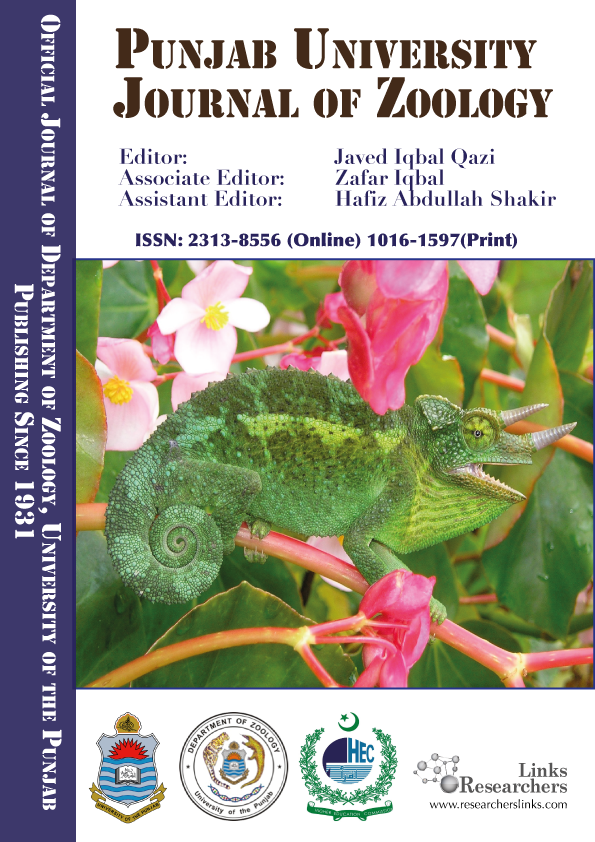ABSTRACT
Abstract | Screening of plasmid mediated AmpC beta-lactamases (AmpC) has clinical significance due to developing resistance of clinical pathogens against several beta-lactam antibiotics. This study was conducted on 11,725 specimens collected from hospitalized and non-hospitalized patients from July 2013 to June 2016. API 20E system has been used to identify K. pneumoniae and E. coli; preliminary screening for AmpC beta-lactamase production was done by cefoxitin disc followed by inhibitor based confirmatory method. Antibiogram was performed following CLSI guidelines 2013. Of 11,725 clinical specimens, 29 % were culture-positive. 80% K. pneumoniae and 70% E. coli showed resistance to cefotaxime or ceftazidime. Only63% K. pneumoniae and 58% E. coli and were resistant (<18 mm) to FOX. Phenotypic confirmation of pAmpC beta-lactamases was done using inhibitory based method and confirmed 46% K. pneumoniae and 8% E. coli pAmpC positive. A variable resistance pattern was seen in both pAmpC beta-lactamases producing K. pneumoniae and E. coli for Amikacin, Gentamicin, Levofloxacin, Ciprofloxacin, Imipenem, Meropenem, Pipracillin-Tazobactam, Cefoperazone-Sulbactam and Cefepime. The study elaborates recent trends in microbial profiles of pAmpC beta-lactamase producing pathogens in Lahore, Pakistan. This knowledge will enable the medical laboratories to report pAmpC β-lactamase detection accurately and support physicians to prescribe the appropriate antibiotics.
To share on other social networks, click on any
share button. What are these?







